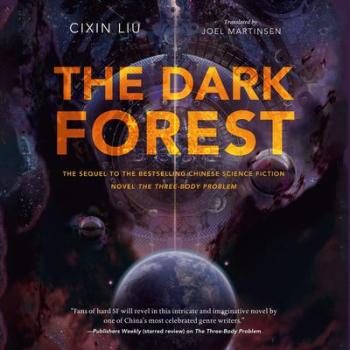As RJS (at Scot McKnight’s Jesus Creed blog) continues his discussion of Francis Collins’ The Language of God, he brings up what is the crux of the matter for many Christians: the relationship of “Adam and Eve” to the theological appropriation of those stories in the New Testament. I had a chance over the past three Sundays to give a series of talks about Religion and Science: Past, Present and Future at Northminster Presbyterian Church here in Indianapolis. It was a delightful opportunity to explore these issues. In a recent blog entry, Jim West notes that many today shift blame onto their DNA, in the same way others blame Adam and Eve. Science and religion are both misused for blame-shifting by those who inadequately understand them. (Michael Heller has an article in First Things about religion and science).
Parchment and Pen has a thoughtful post about not claiming that God will protect us in special ways when we know that Christianity does nothing to exempt one from suffering. But in light of this honesty, we do need to ask how we should think of God and God’s relationship to the world. Does God only intervene on “special occasions”? Or does God work through the natural processes of the universe and history? One cannot acknowledge that Christians are not specially exempted from suffering without also realizing that this necessitates that we think differently about God than the Biblical authors and most Christians down the ages did.
C. Orthodoxy has a post on Holy Week without the death and resurrection, objecting to the removal of suffering and death from an Easter curriculum for small children. (Chris Salzman has a follow-up). I don’t see the problem – not everything in the Bible is appropriate for small children. In the same post, the role of fantasy in communicating Christian ideas is also raised. Reading it, I found myself thinking that we must ask what the nature of the resurrection story is, and its power, when one can no more prove that Jesus rose as a physical, historical fact than that Gandalf or Harry Potter did. For the first Christians, as for us today, if “you ask me how I know he lives”, the only honest answer we can give is “he lives within my heart”. But that is not a claim about history but about a profoundly life-changing religious experience. Can pure fantasy challenge us the same way, and bring about changes in our lives, every bit as much as unprovable history can? At any rate, rather than water down stories, perhaps we should indeed leave the Bible, the Lord of the Rings, and Harry Potter until children are the appropriate age.
Codex has a post about not treating Proverbs as promises.
If you haven’t been watching Battlestar Galactica, here’s your chance to get caught up in time for the start of the new season.












